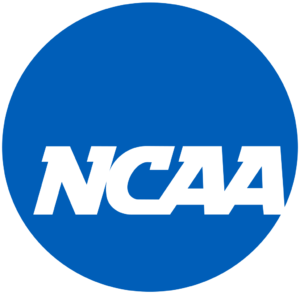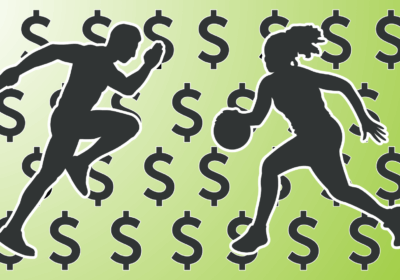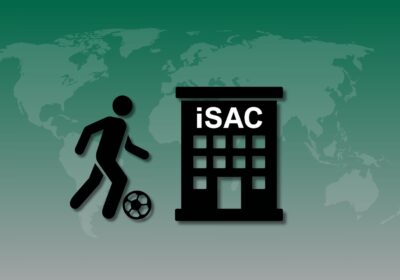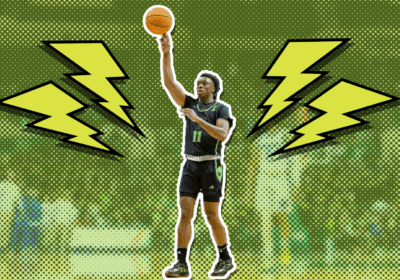OPINION: California bill is a step forward

Government involvement in sports is usually not a good thing.
The net result is typically a shiny, new taxpayer-funded stadium to the tune of several hundred million dollars.
California proved that there is an exception to the rule this week, and Florida could be next.
Gov. Gavin Newsom (D-CA) signed a bill Monday that would allow college athletes in the state to profit from their own likenesses — whether that’s signing endorsement deals, selling jerseys or signing with agents.
If the California bill survives the legal challenges by the NCAA, it would go into effect Jan. 1, 2023.
Closer to home, Rep. Kionne McGhee (D-FL) has filed a similar bill that would go into effect next July.
House Bill 251 calls for “students participating in intercollegiate athletics to receive specified compensation” and creates a “Florida College System Athlete Name, Image, & Likeness Task Force.”
It’s different from the California bill in that it doesn’t call for schools to pay players themselves, but rather allows for outside endorsements, selling autographs or signing with agents.
Similar bills have been filed in South Carolina and New York.
As Bob Dylan once said, the times they are a-changin’.
For the better, too.
It’s ridiculous that a college athlete is unable to use their likeness to make money in the first place. Every other student on campus can do so.
Now, whether any other student is popular enough to do so is a different topic — but the select few who play varsity sports can’t.
Meanwhile, universities and other NCAA partners are free to use player likenesses to promote upcoming games and broadcasts. The NCAA itself is a billion-dollar industry.
That’s not to say players get absolutely nothing in return from the schools now.
Athletes on full scholarships get free education, boarding and meal stipends — though it took UConn’s Shabazz Napier saying he went to bed “starving” some nights during the 2014 Final Four before the stipends were introduced in September 2015.
Plus, there are perks to playing one of the revenue sports, such as the national exposure that comes with being an FBS quarterback or a starting power forward at Duke.
But, in both sports, athletes are basically forced to play in college before turning pro. In basketball, it’s only a season. Though in football, a player must be removed from high school for three years before they are eligible for the NFL Draft.
Players with ambitions of playing professionally are, for the most part, forced into playing in college, even if they don’t care about the education that comes with it.
Being a college athlete and a full-time student are both major commitments on their own. So forget about making a few extra bucks bagging groceries at Publix — your life starts and ends with your university.
There’s valid concern that this might create an unfair playing field. UF and FSU donors/fans/sponsors may be able to entice athletes into coming to their school more than USF’s equivalents.
But it might also eliminate the shadiness and drama that come with it.
Reggie Bush gave up the 2005 Heisman Trophy in 2010 because of improper benefits he allegedly received from sports marketing agents during his time at Southern California.
Bush never admitted guilt, even after giving back the trophy, but it’s still ludicrous to think there is no official winner of the 2005 Heisman Trophy because that season starts and ends with Bush.
USC also vacated 14 wins — including the 2005 BCS National Championship. The Trojans lost the Rose Bowl to Texas in 2006, but had they won, there would have been no national champion two years in a row — at least that’s what the official records would say today.
If the new California law were in effect at the time, it’s likely Bush is still the 2005 Heisman winner and USC still has all 12 of its wins from 2005. Of course, there’s no telling what the playing field would have been like that season had all FBS teams been acting the same.
Bush’s story is one of the highest-profile cases, especially in recent memory, of backroom dealing — although how backroom it actually was can be debated as the NCAA eventually punished USC for a lack of “institutional control.”
But it’d be ignorant to think that doesn’t go on all the time, even still. All it does is reward those who are smart enough to cheat without getting caught and punish those who don’t. It also impacts the record books when it happens in such a high-profile case as Bush and USC.
There’s something to be said about amateurism, but most amateurs are such because no one will pay them for their talents, not because they’re prohibited from being paid.
So let the players make a few bucks, especially if it’s from other people — not the university itself — putting up the money.
Most importantly, it’s good states are leading the fight to change this, because the NCAA would never have done it on its own.
What they said
USF football coaches were asked their thoughts on the California bill this week.
Head coach Charlie Strong on the AAC’s weekly conference call Monday
“Well, we knew at some point that was going to happen. Now that California’s passed that bill, it will eventually just go across the other states … if a young man has done enough, and that’s what they look at now, for their likeness, and how much they have helped that program, because the program is making money and it’s something we are not going to be able to stop now that California’s done it, it’s probably going to sweep across this country.”
Defensive coordinator Brian Jean-Mary
“Sometimes you’ve got to know when to turn in your chips in a certain type of game. I’m not going to speak on the particulars. I know, as a whole, us as coaches, we want the players to be able to benefit because we really feel like they have given us their all. You’ve got guys that have career-changing injuries, and we try to get as much out of them.
“They’re [NCAA] trying methods, but, obviously, some kids in some places feel like there’s more. So I hope they come to a happy medium. That would be my goal.”
Offensive coordinator Kerwin Bell
“I’m an old-school guy, you know. I believe an athlete — he gets a lot. Now, he works his butt off and he has got unbelievable ability. But listen, he gets a full ride. He gets more than that a lot of times when he has cost of living, and he gets money here at the university. But listen, I’m all about athletes and them guys — if everybody’s on the same playing field, if everybody can afford that — you’ve got to look at those things. Can all the universities afford to do those things? And will it be a level playing field if some do and some don’t?
“This is one of the greatest sports in the history of mankind — it’s college football — just the way the people buy into it because these kids are here on college education, they’re student athletes. That’s the great thing about it, and they go out and perform in front of thousands, thousands of people and people love that and people buy into that and we don’t need to mess that up.”







